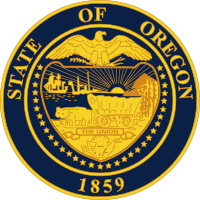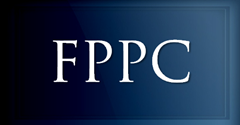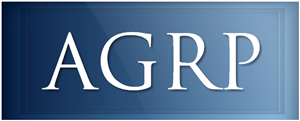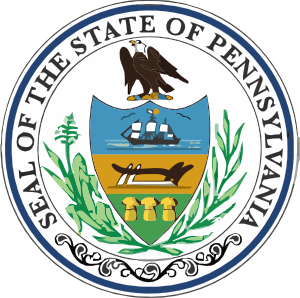November 23, 2015 •
APOC Proposes Changes to State Regulations
The Alaska Public Offices Commission proposes to adopt regulation changes concerning mitigation criteria and penalty assessment for violations of state lobbying and campaign finance laws. Substantive changes include expanding the definition of inexperienced filer to take into account technical issues, […]
 The Alaska Public Offices Commission proposes to adopt regulation changes concerning mitigation criteria and penalty assessment for violations of state lobbying and campaign finance laws. Substantive changes include expanding the definition of inexperienced filer to take into account technical issues, defining self-reporting, and limiting penalties to be considered out of proportion to the alleged violation.
The Alaska Public Offices Commission proposes to adopt regulation changes concerning mitigation criteria and penalty assessment for violations of state lobbying and campaign finance laws. Substantive changes include expanding the definition of inexperienced filer to take into account technical issues, defining self-reporting, and limiting penalties to be considered out of proportion to the alleged violation.
Written comments must be submitted to the Commission by January 29, 2016. Oral comments may be submitted at a hearing on February 11, 2016 in Anchorage. The Commission will aggregate its response to substantially similar questions and make the questions and responses available on its website.
November 23, 2015 •
Oregon Government Ethics Commission Announces Release Date for Online Filing System
The Oregon Government Ethics Commission has announced the date their new online filing system will go live for lobbyist registration. Starting December 15, lobbyists should be able to register through the new online system for 2016. The online system has […]
 The Oregon Government Ethics Commission has announced the date their new online filing system will go live for lobbyist registration.
The Oregon Government Ethics Commission has announced the date their new online filing system will go live for lobbyist registration.
Starting December 15, lobbyists should be able to register through the new online system for 2016.
The online system has been planned since 2007, and aims to increase transparency by allowing the public to view lobbying and public official financial disclosures online.
November 23, 2015 •
Monday News Roundup
Lobbying “Start-Up Leaders Embrace Lobbying as Part of the Job” by Cecilia Kang in The New York Times Campaign Finance Kansas: “Wichita City Council considers changes to campaign finance, salaries” by Kelsey Ryan in The Wichita Eagle Washington: “Seattle provides […]
 Lobbying
Lobbying
“Start-Up Leaders Embrace Lobbying as Part of the Job” by Cecilia Kang in The New York Times
Campaign Finance
Kansas: “Wichita City Council considers changes to campaign finance, salaries” by Kelsey Ryan in The Wichita Eagle
Washington: “Seattle provides cash for average political players” by Gene Johnson (Associated Press) in The Detroit News
Ethics
“Ethics Committee Defers to DOJ on Pittenger Probe” by Bridget Bowman in Roll Call
Oregon: “Online financial disclosure system to launch Jan. 1” by Hillary Borrud in The Daily Astorian
Elections
Maine: “Maine May Be 1st State to Eliminate ‘Winner Take All’ Elections” by Christopher Cousins (Tribune News Service) in Governing
Legislative Sessions
Indiana: “Four things to expect from the Indiana legislature” by Brian Slodysko (Associated Press) in the Courier-Journal
Kansas: “Kansas black leaders agree on legislative, election agenda” by The Associated Press in The Topeka Capital-Journal
Massachusetts: “State legislative session sputters to an end” by Frank Phillips in the Boston Globe
Government Transparency
Alaska: “Alaska’s Open Data Portal Still Dark” by Nathaniel Herz (Alaska Dispatch News) in Government Technology
November 20, 2015 •
News You Can Use Digest – November 20, 2015
National: Inside the Clinton Donor Network Washington Post – Matea Gold, Tom Hamburger, and Anu Narayanswamy | Published: 11/19/2015 The Washington Post identified donations from roughly 336,000 individuals, corporations, unions, and foreign governments in support of the political or philanthropic endeavors […]

National:
Inside the Clinton Donor Network
Washington Post – Matea Gold, Tom Hamburger, and Anu Narayanswamy | Published: 11/19/2015
The Washington Post identified donations from roughly 336,000 individuals, corporations, unions, and foreign governments in support of the political or philanthropic endeavors of Bill and Hillary Clinton. The investigation found many top patrons supported them in multiple ways, helping finance their political causes, their legal needs, their philanthropy, and their personal bank accounts. The Clintons’ fundraising operation – $3 billion amassed by one couple, working in tandem for more than four decades – has no equal. The donor network is now serving as both a prime asset and liability for Hillary Clinton as she seeks the Democratic presidential nomination.
One Slogan, Many Methods: Black Lives Matter enters politics
New York Times – John Eligon | Published: 11/18/2015
Black Lives Matter began as a hashtag and grew into a protest slogan – after prominent police killings of blacks over the past year – and became an Internet-driven civil rights movement. The phrase is as much a mantra as a particular organization, with the general public lumping numerous groups under the Black Lives Matter banner, even if they are not officially connected. Yet amid the groups’ different approaches has been a swirl of political activity. Local affiliates of the Black Lives Matter organization have disrupted numerous Democratic presidential campaign events, pushing the candidates to support policies to end mass incarceration and police brutality. That organization now has 26 chapters that largely set their own direction. Yet the young and sometimes cacophonous movement is struggling to find its voice, as the activists who fly its banner wade into national politics.
Republican Governors: A winning machine
Politico – Kevin Robillard | Published: 11/18/2015
While Democrats have reshaped the federal government under President Barack Obama, Republicans have methodically taken over state after state around the country, swelling the number of GOP governors from 19 to 31 and enacting conservative priorities from budget cuts to new restrictions on unions and abortion. Behind each of those policy and political victories was the Republican Governors Association (RGA), planning, funding, and executing the GOP’s state-based resurgence. The RGA has avoided congressional Republicans’ problems, especially in hard-to-win blue states, by playing a relentless but “quiet” role in recruiting candidates that fit their states, said former RGA Director Phil Musser.
The Koch Intelligence Agency
Politico – Kenneth Vogel | Published: 11/18/2015
An operation that is part of the Koch brothers’ political network conducts surveillance and intelligence gathering to try to thwart liberal groups and activists, and to identify potential threats to the network. The intelligence team has a staff of 25, including one former CIA analyst. It sends regular emails tracking the canvassing, phone-banking, and voter-registration efforts of labor unions, environmental groups, and their allies. The team utilizes high-tech tactics to track the movements of liberal organizers, including culling geo-data embedded in their social media posts. “We were caught off guard by what the left was doing in 2012, and we’d be foolish to be caught in that position again,” said Marc Short, president of Freedom Partners Chamber of Commerce, the network’s central group.
Federal:
Clinton, Bush Lawyers Square Off in FEC Proxy War
Politico – Isaac Arnsdorf and Theodoric Meyer | Published: 11/11/2015
Requests to relax limits on coordination between candidates and super PACs left the FEC divided recently. The often-deadlocked commission only managed to agree on five of the dozen questions that were raised at a hearing. They were unable to reach a majority decision on whether a potential candidate could form a super PAC before announcing his or her campaign, or whether a potential candidate could share advance plans with a super PAC before jumping into the race. They also could not agree on whether super PACs could film footage of potential candidates with an eye toward using it in ads. Four of the six commissioners did vote to let candidates attend fundraisers with as few as two donors.
From the States and Municipalities:
Arizona – Lobbying Records Only Disclose Recipient for $1 Out of Every $8 Spent
Arizona Center for Investigative Reporting – Justin Price | Published: 11/13/2015
Lobbyists in Arizona are required to report their expenditures in quarterly reports. But loopholes and minimal regulatory oversight leave room for them to spend without reporting who benefited. Lobbying records for 2015 include a beneficiary for one dollar out of every eight dollars spent. A report by the Center for Public Integrity gave Arizona’s lobbying disclosure an “F” grade. Reporting exemptions exist for both large- and small-dollar expenditures and lobbyists face minimal threat of being audited for filing reports incorrectly or incompletely.
California – California Ethics Panel Targets Vague Lobbying Payments
Sacramento Bee – Jeremy White | Published: 11/18/2015
Under current California law, anyone who spends at least $5,000 to sway legislation or administrative rulemaking must file quarterly reports. But much of the spending falls into a nebulous category called “other payments to influence,” a designation that can include the cost of mounting advertising campaigns, paying office overhead, and retaining political consultants. Seeking more clarity, the Fair Political Practices Commission is pushing an amendment that would have lobbyist employers break down expenditures that exceed $2,500 into an array of categories that include paying employees other than lobbyists, advertising, and public affairs work. They also would have to disclose the recipients of the payments.
California – Inside California Lawmakers’ Paid Trips to Maui
Sacramento Bee – Alexei Koseff | Published: 11/18/2015
The California Independent Voter Project’s annual conference has once again arrived, bringing together 21 state lawmakers and dozens of corporate sponsors for five days in Hawaii. This type of travel is nothing new for California legislators, who have been venturing overseas for decades at the expense of business groups, labor unions, foreign governments, and their campaign donors. Yet the Independent Voter Project conference, with its luxurious setting, has become something of a lightning rod for criticisms about the cozy relationship between lawmakers and special interests. “… If the purpose of the trip were to educate lawmakers about the problems of California, they would go to Fresno,” said Jack Pitney, a professor of politics at Claremont McKenna College.
Florida – County Ethics Commission Sues Hialeah Mayor for Trying to Pay $4K Fine with Pennies
Miami Herald – Brenda Medina | Published: 11/18/2015
The Miami-Dade Commission on Ethics and Public Trust sued Hialeah Mayor Carlos Hernandez for trying to pay a $4,000 fine with 28 buckets of pennies and nickels. The commission also doubled the fine imposed on Hernandez, saying he intentionally broke its regulations by sending the 360,000 coins even though he knew the panel accepts only checks.
Illinois – Feds Seize Computers, Files on Chicago Officials from Outgoing Inspector General
Politico – Natasha Korecki | Published: 11/16/2015
The FBI seized documents and computers from legislative Inspector General Faisal Khan’s office on his last day overseeing Chicago elected officials. Kahn said the office was working on several investigations. In the past four years, the inspector general’s office has had a tumultuous relationship with City Hall. While the office had jurisdiction over aldermen and support staff, it could not launch investigations based on anonymous complaints, and required the notification of any subject under investigation. Khan spoke about his disbelief both with the mayor’s office and with the city council over their resistance to oversight. “Thirty aldermen over 40 years have gone to jail. … I would describe to you that the oversight in Chicago is comparable to the Wild West – anything goes,” Kahn said.
Montana – Committee Fails to Block New Campaign Rules
Flathead Beacon – Matt Volz (Associated Press) | Published: 11/17/2015
New rules affecting Montana’s campaign finance law will take effect after a legislative committee failed to delay the changes. The regulations will be adopted by Commissioner of Political Practices Jonathan Motl in the coming days after a final review. They will become effective once they are published by the Montana secretary of state, which will likely happen in February, and will apply to the 2016 primary elections in June. The guidelines will require more reporting by candidates and organizations, tighten restrictions on candidate coordination, and require same-day electronic reporting of contributions.
New Mexico – Acting SOS Plans to Clarify Lobbyist Contributions
New Mexico in Depth – Sandra Fish | Published: 11/18/2015
Acting Secretary of State Mary Quintana intends to clarify rules on how lobbyists report campaign contributions to candidates in New Mexico. Lobbyists often contribute on behalf of their clients. But some list the clients as the donors in their reports and others do not. Some of those listings are also unclear about who the recipient is – a candidate or a candidate’s PAC.
Ohio – Ohio Probes Whether Wright University Violated Lobbying Laws
Washington Times; Associated Press – | Published: 11/19/2015
Ohio Attorney General Mike DeWine is investigating whether Wright State University and its consultant, Ron Wine, violated lobbying laws when the university paid him nearly $2 million without prior approval from the state Controlling Board. State law since 2011 has mandated that public universities get Controlling Board approval for any lobbying contracts that exceed $50,000 in a calendar year. Employees paid to advocate for their clients’ interest are required to register as lobbyists if that part of their job exceeds five percent of their workload for legislative lobbying or 25 percent for executive branch lobbying. Ohio Legislative Inspector General Tony Bledsoe gave the university 15 days to register Wine as a lobbyist or explain why he is not one.
Texas – Travis County Has No Rules for Registering Lobbyists
Austin American-Statesman – Sean Collins Walsh | Published: 11/15/2015
Lobbyists are not required to register with Travis County, and firms do not have to disclose who is being paid to advocate for them. The city of Austin’s and the state of Texas’ lobbying disclosure systems are often criticized for loopholes and poor enforcement, but they still provide a level of transparency that Travis County’s procedures do not address. Advocates for lobbyist registration say it enables the public to monitor who is influencing government decisions and reduces the likelihood that insider deals will go undetected, or at least makes it easier to figure out what happened if a transaction is later scrutinized.
Wisconsin – Assembly GOP Approves Rewritten Campaign Finance Laws, GAB Overhaul
Milwaukee Journal Sentinel – Patrick Marley | Published: 11/16/2015
The Wisconsin Assembly gave final approval to a pair of bills that would alter the flow of money to campaigns and change oversight of ethics laws. Gov. Scott Walker is expected to sign them into law. One bill would replace the Government Accountability Board, which is comprised of retired judges, with two separate panels consisting of partisan appointees. The other bill would make clear that candidates can coordinate political activity with issue advocacy groups that do not have to disclose their donors. It would also double allowable individual campaign contribution limits, do away with a requirement that donors giving more than $100 to campaigns disclose who they work for, and allow corporate contributions to political parties and legislative campaign committees for the first time.
 State and Federal Communications produces a weekly summary of national news, offering more than 60 articles per week focused on ethics, lobbying, and campaign finance.
State and Federal Communications produces a weekly summary of national news, offering more than 60 articles per week focused on ethics, lobbying, and campaign finance.
November 19, 2015 •
New Mexico Secretary of State to Address Shortcomings in Lobbying Rules
After state lawmakers voiced concerns about problems with the state’s lobbyist reporting system, Secretary of State Mary Quintana intends to clarify campaign finance and lobbying rules. Members of the Legislature became concerned after reports exposed confusion about what is required […]
 After state lawmakers voiced concerns about problems with the state’s lobbyist reporting system, Secretary of State Mary Quintana intends to clarify campaign finance and lobbying rules.
After state lawmakers voiced concerns about problems with the state’s lobbyist reporting system, Secretary of State Mary Quintana intends to clarify campaign finance and lobbying rules.
Members of the Legislature became concerned after reports exposed confusion about what is required under the reporting system.
Quintana admitted to shortcomings in the law, and vowed to work with lawmakers and others to create new, less ambiguous rules.
November 19, 2015 •
New York Joint Commission on Public Ethics Seeking Public Comment
The Joint Commission on Public Ethics is seeking public comment on a proposed advisory opinion. The advisory opinion is in regards to the applicability of New York’s Lobbying Act to the activities of consultants when they are taking part in […]
 The Joint Commission on Public Ethics is seeking public comment on a proposed advisory opinion. The advisory opinion is in regards to the applicability of New York’s Lobbying Act to the activities of consultants when they are taking part in direct and grassroots lobbying, and whether they are subject to registration and reporting requirements.
The Joint Commission on Public Ethics is seeking public comment on a proposed advisory opinion. The advisory opinion is in regards to the applicability of New York’s Lobbying Act to the activities of consultants when they are taking part in direct and grassroots lobbying, and whether they are subject to registration and reporting requirements.
The advisory opinion seeks to articulate when the Lobbying Act covers the services of consultants, and to clarify the test used to determine when grassroots advocacy constitutes reportable activity.
Comments will be taken by the Committee until December 4, 2015.
November 19, 2015 •
Thursday News Round Up
Lobbying “Refugee Groups Scramble to Defend Syrian Resettlement” by Simone Pathe for Roll Call California: “California Ethics Panel Targets Vague Lobbying Payments” by Jeremy White for Sacramento Bee New Mexico: “Acting SOS Plans to Clarify Lobbyist Contributions” by Sandra Fish […]
“Refugee Groups Scramble to Defend Syrian Resettlement” by Simone Pathe for Roll Call
California: “California Ethics Panel Targets Vague Lobbying Payments” by Jeremy White for Sacramento Bee
New Mexico: “Acting SOS Plans to Clarify Lobbyist Contributions” by Sandra Fish for New Mexico in Depth
Campaign Finance
“New Tax Documents Show Crossroads GPS Poured Millions into 2014 Senate Race” by Carrie Levine for Center for Public Integrity
Montana: “Committee Fails to Block New Campaign Rules” by Matt Volz (Associated Press) for Flathead Beacon
New York: “Statewide Officials Seek to Narrow Draft Opinion Curbing Own Fundraising” by Chris Bragg for Albany Times Union
New York: “Schneiderman, Sugarman Charge Ex-Assembly Candidate for Not Filing Reports” by Chris Bragg for Albany Times Union
Elections
“The Koch Intelligence Agency” by Kenneth Vogel for Politico
“Bobby Jindal Quits Republican Presidential Race” by Jonathan Martin for New York Times
November 18, 2015 •
California’s FPPC Proposes Regulations Affecting Lobbyist Reporting
The Fair Political Practices Commission (FPPC) has proposed rules amending reporting requirements for “other payments to influence legislative or administrative action”, as provided in California Government Code section 86116. The proposed regulations require such payments to be itemized on periodic […]
 The Fair Political Practices Commission (FPPC) has proposed rules amending reporting requirements for “other payments to influence legislative or administrative action”, as provided in California Government Code section 86116. The proposed regulations require such payments to be itemized on periodic disclosure reports.
The Fair Political Practices Commission (FPPC) has proposed rules amending reporting requirements for “other payments to influence legislative or administrative action”, as provided in California Government Code section 86116. The proposed regulations require such payments to be itemized on periodic disclosure reports.
According to the FPPC, these payments encompass a range of expenditures and lump sum reporting does not provide the type of transparency imagined by the drafters of the statute. The amended regulations affect lobbyist employers and persons spending $5,000 or more to influence legislative or administrative action.
The FPPC will hold an interested persons meeting on December 3, 2015 at 10 a.m. to solicit public comment regarding the proposed rules. The rules will be considered for adoption at the FPPC’s January 21, 2016, meeting.
November 18, 2015 •
Wednesday Government Relations News
Lobbying Texas: “Lobby Reform Rules Move Forward” by Jo Clifton for Austin Monitor Campaign Finance “What Are the Benefits of Campaign Finance Reform?” by Sam Power for Washington Post California: “Vacations, Groceries, Hotels: Supervisor Todd Spitzer’s spending from obscure fund […]
Texas: “Lobby Reform Rules Move Forward” by Jo Clifton for Austin Monitor
Campaign Finance
“What Are the Benefits of Campaign Finance Reform?” by Sam Power for Washington Post
California: “Vacations, Groceries, Hotels: Supervisor Todd Spitzer’s spending from obscure fund raises questions” by Meghann Cuniff for Orange County Register
Connecticut: “Dems Would Scrap Clean Election Program to Balance Budget” by Christine Stuart for CTNewsJunkie.com
Ethics
“Chris Christie, Taking Law-and-Order Stance, Sidesteps Bridge Scandal in ’16 Race” by Alexander Burns for New York Times
North Carolina: “NC Rep. Lewis Took Last-Minute Action to Protect Friend’s State Contract” by Patrick Gannon for Raleigh News & Observer
Wisconsin: “Assembly GOP Approves Rewritten Campaign Finance Laws, GAB Overhaul” by Patrick Marley for Milwaukee Journal Sentinel
Redistricting
“Supreme Court Takes Up Virginia Redistricting Case” by Jenna Portnoy for Washington Post
November 17, 2015 •
Tuesday Lobbying and Campaign Finance News Update
Lobbying Arizona: “Lobbying Records Only Disclose Recipient for $1 Out of Every $8 Spent” by Justin Price for Arizona Center for Investigative Reporting Texas: “Travis County Has No Rules for Registering Lobbyists” by Sean Collins Walsh for Austin American-Statesman Campaign […]
 Lobbying
Lobbying
Arizona: “Lobbying Records Only Disclose Recipient for $1 Out of Every $8 Spent” by Justin Price for Arizona Center for Investigative Reporting
Texas: “Travis County Has No Rules for Registering Lobbyists” by Sean Collins Walsh for Austin American-Statesman
Campaign Finance
“Clinton, Bush Lawyers Square Off in FEC Proxy War” by Isaac Arnsdorf and Theodoric Meyer for Politico
Alaska: “Group Files Federal Lawsuit Challenging Alaska Campaign Contribution Limits” by Austin Baird for KTUU
Wisconsin: “Assembly GOP Approves Rewritten Campaign Finance Laws” by Patrick Marley for Milwaukee Journal Sentinel
Ethics
District of Columbia: “Metro Board Chairman Cleared of Alleged Ethics Violation” by Paul Duggan for Washington Post
Illinois: “Feds Seize Computers, Files on Chicago Officials from Outgoing Inspector General” by Natasha Korecki for Politico
New York: “At Trial, Prosecutors to Detail Dean Skelos’s Favors for His Son” by William Rashbaum for New York Times
Elections
“How the Kochs Launched Joni Ernst” by Kenneth Vogel for Politico
“In Presidential Campaign, It’s Now Terrorism, Not Taxes” by Jonathan Martin for New York Times
November 16, 2015 •
Georgia Announces Proposed Changes to Lobbying, Campaign Finance Rules
The Georgia Government Transparency and Campaign Finance Commission issued a notification of proposed changes to the Commission’s rules. New rules being considered deal with lobbying expenditures made to the family of a public official or employee, when campaign contributions are […]
 The Georgia Government Transparency and Campaign Finance Commission issued a notification of proposed changes to the Commission’s rules. New rules being considered deal with lobbying expenditures made to the family of a public official or employee, when campaign contributions are deemed received, and anonymous contributions.
The Georgia Government Transparency and Campaign Finance Commission issued a notification of proposed changes to the Commission’s rules. New rules being considered deal with lobbying expenditures made to the family of a public official or employee, when campaign contributions are deemed received, and anonymous contributions.
Rule amendments are also being considered to several sections of Chapter 189, including 189-1-.07 concerning adjustments of contribution limits based on inflation.
The Commission will consider the changes on December 15, 2015.
November 16, 2015 •
State and Federal Communications Has Three Staff Members Receive AGRP Professional Lobbying Certificate
State and Federal Communications is pleased to announce the following individuals received their Professional Lobbying Certificate at the AGRP Annual Meeting. Michael Beckett, Esq., George Ticoras, Esq., and John Cozine, Esq. received their certificates after completing the year-long Lobbying Certificate […]
 State and Federal Communications is pleased to announce the following individuals received their Professional Lobbying Certificate at the AGRP Annual Meeting.
State and Federal Communications is pleased to announce the following individuals received their Professional Lobbying Certificate at the AGRP Annual Meeting.
Michael Beckett, Esq., George Ticoras, Esq., and John Cozine, Esq. received their certificates after completing the year-long Lobbying Certificate program. Since 2008, 11 staff from the company have completed the program, which is the only certificate program for the government relations professional that covers the wide range of activities that comprise modern government relations.
Through 14 courses over a year, participants have the opportunity to get the baseline knowledge of the numerous topics that need to be known by lobbyists and grassroots practitioners. Within those courses, five are required that cover Ethics of Advocacy, LDA & Compliance, PAC & Campaign Fundraising, Congressional Rules & Procedure and Communications & Media.
The Association of Government Relations Professionals (AGRP) is the national professional society dedicated exclusively to government relations, public policy and lobbying. AGRP’s mission is to enhance the development of the profession, competence, and high ethical standards for advocates in the public policy arena; and to collectively address the challenges affecting the First Amendment right to “petition the Government for redress of grievances.” For more information, visit http://grprofessionals.org.
November 16, 2015 •
Pennsylvania Cracking Down on Those Failing to Report Lobbying Expenses
The Pennsylvania Ethics Commission is increasing its enforcement efforts against those who fail to report lobbying expenditures. This year, 31 groups were cited for failing to file expense reports with fines totaling $90,300. In comparison, last year, only 15 citations […]
 The Pennsylvania Ethics Commission is increasing its enforcement efforts against those who fail to report lobbying expenditures. This year, 31 groups were cited for failing to file expense reports with fines totaling $90,300. In comparison, last year, only 15 citations were issued with fines reaching $44,000.
The Pennsylvania Ethics Commission is increasing its enforcement efforts against those who fail to report lobbying expenditures. This year, 31 groups were cited for failing to file expense reports with fines totaling $90,300. In comparison, last year, only 15 citations were issued with fines reaching $44,000.
At the same time, the General Assembly is working on legislation to increase the penalty for noncompliance. House Bill 1348’s proposed increase is from $50 per day to a tiered system where the fine increases the later the report becomes. The bill passed the House unanimously in October and is awaiting action in the Senate.
November 16, 2015 •
Commission Backs Proposed Changes to Austin, Texas Lobbying Law
The Ethics Review Commission has given its support to Council Member Leslie Pool’s proposed lobbying law changes. These changes include broadening the definition of lobbyist, increasing disclosure requirements, and removing a loophole allowing part-time lobbyists to avoid registering. Pool’s proposal […]

The Ethics Review Commission has given its support to Council Member Leslie Pool’s proposed lobbying law changes. These changes include broadening the definition of lobbyist, increasing disclosure requirements, and removing a loophole allowing part-time lobbyists to avoid registering.
Pool’s proposal has been met with opposition from those involved in the design and building industries. They claim the ordinance is too broad and would require architects, engineers, and others involved in the building industries to register as lobbyists. Also, many of these professionals currently serve on city boards and commissions. If they are required to register, they will have to resign from those seats because city law prohibits registered lobbyists from serving on city boards and commissions. The group representing the developers feels such a move would result in the city being robbed of valuable expertise.
This opposition has resulted in Pool making some changes to the ordinance, but the group representing developers is still not satisfied.
So far, registered lobbyists have not opposed the new changes even though the proposal would increase their reporting requirements. If passed, the ordinance would require lobbyists to provide greater detail about who they are representing, how much money is being spent on a lobbying efforts, and how much they receive in payments from clients.
The ordinance will now be presented to the Audit and Finance Committee. From there is will proceed through City Council, with a possible final vote coming early next year.
Photo of the Austin, Texas skyline by Erik A. Ellison on Wikimedia Commons.
State and Federal Communications, Inc. provides research and consulting services for government relations professionals on lobbying laws, procurement lobbying laws, political contribution laws in the United States and Canada. Learn more by visiting stateandfed.com.



